Yolanda Cuba Photo: David Harrison
Leading with Inclusion: Building Leaders, Not Followers
Yolanda Cuba: Deputy Chief Executive Officer, MTN South Africa
With more than two decades of experience spanning telecommunications, financial services, and diversified investments, Yolanda Cuba combines operational expertise with a deep commitment to people-centred leadership. In her role at MTN, she provides leadership to many. When we sat down at the International Women’s Forum South Africa (IWFSA) Cornerstone Conference, she shared her perspectives on leadership, inclusion, and organisational culture.
“For me, leadership is about putting people at the centre of everything we do,” Cuba explains. “It is not just about results, it is about achieving results through people. When I say ‘I am because we are’, it is a collective call to get better together and ensure no one is left behind.”
This philosophy guides MTN’s strategic intent to deliver the benefits of a modern, connected life inclusively across Africa.
Cuba emphasises that culture cannot be taught through textbooks. “Culture comes from understanding the why of everyone in the organisation, and aligning systems, processes, and incentives to that purpose,” she notes. “It is what you celebrate, the processes you put in place, and how you structure your teams that shape a culture of inclusion.”
Mentorship plays a central role in Cuba’s leadership approach. Each year, she opens her mentorship circle to applications, seeking individuals who demonstrate resilience and a spark of initiative. “I look for people who are committed, who believe they are destined for more, and who have tried different approaches to reach their goals. That spark tells me they are willing to invest in themselves and grow,” she says.
At MTN, Cuba’s leadership focuses on connecting people and improving lives. “Practically, this means ensuring everyone has access to data-enabled devices and affordable connectivity. When we remove barriers like data anxiety, people can focus on learning, improving, and realising their potential,” she explains.
Cuba highlights MTN’s commitment to gender inclusion. “Women make up 44% of our workforce, but leadership representation still needs improvement. Our goal is to reflect society in our teams and ensure equal pay for equal work.”
Supporting initiatives like the IWFSA Young Leaders Connect (YCL) and FASSET programmes, MTN actively advances the inclusion of women in business and leadership.
She stresses the enduring responsibility of leadership. “Our job as leaders is to build other leaders, not followers. The real measure of success is whether we have developed people who can lead with confidence and make a meaningful impact.”
Beyond Compliane: Redefining Leadership, Governance, and Transformation
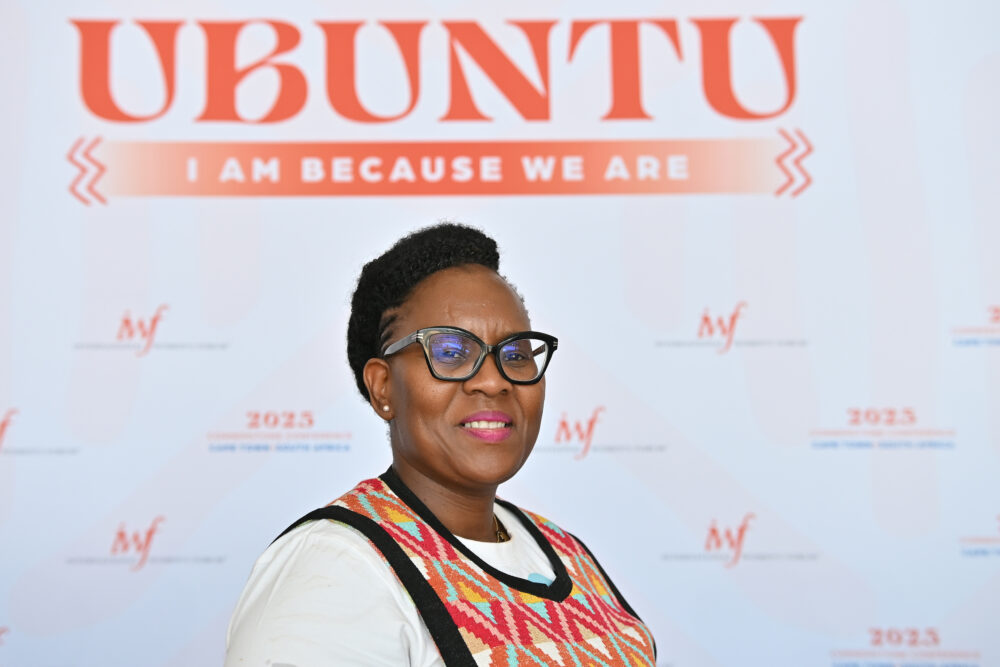 Ayanda Mafuleka Photo: David Harrison
Ayanda Mafuleka Photo: David Harrison
Ayanda Mafuleka: Chief Executive Officer, Financial Accounting Services Seta (FASSET)
Ayanda Mafuleka has built a career of accomplishment. She is a chartered accountant, CEO of Financial Accounting Services Seta (FASSET), International Women’s Forum (IWF) Leadership Fellow and a recent graduate of INSEAD and Harvard Business School. Her combined competencies have led her into a leadership role at IWF, where she prioritises transformation.
“Real transformation is visible when previously marginalised voices are not just included, but heard and trusted in decision-making,” Mafuleka says. For her, it’s about belonging, fairness, and systems that serve a broader purpose than profit.
“Transformation is not a policy, it’s a culture. Compliance gets you to the table, but authenticity keeps you there.” Her combination of finance, governance, and law has shaped her approach. “Finance taught me precision; governance taught me ethics; law teaches structure and fairness,” Mafuleka reflects. “Learning keeps you humble and adaptable; it keeps me from leading from memory instead of insight.”
Mafuleka champions institutionalised mentorship. She is a driving force behind the #1000 Women Leadership Programme, a partnership between Fasset, IWF South Africa/Duke CE, and Wits Business School, which equips mid and executive-level women leaders with skills to thrive and lead sustainably.
Despite progress, biases persist. “The biggest barrier is perception: women’s competence is over-scrutinised and under-supported,” she notes.
Breaking barriers requires amplifying women’s voices, creating networks of sponsorship, and holding institutions accountable. “We’ve proven we can lead. The next revolution is to lead without having to prove it every time.”
Recognition follows Mafuleka, yet she focuses on impact. “I’m proudest when young professionals I’ve mentored rise with confidence,” she says. She remains driven by the unfinished work of transforming leadership in Africa to be defined not by survival, but by significance. “Impact is not about being celebrated; it’s about being consequential.”
Leading with Adaptability and Empathy
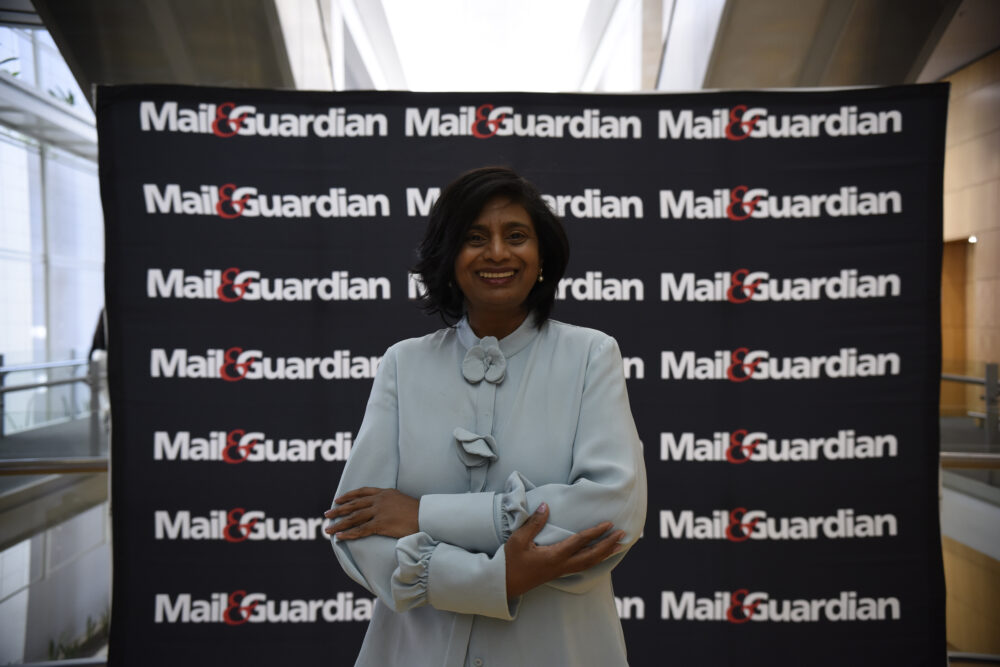 Dr Sharmla Chetty Photo: David Harrison
Dr Sharmla Chetty Photo: David Harrison
Dr Sharmla Chetty: Chief Executive Officer, Duke Corporate Education
Dr Sharmla Chetty, CEO of Duke Corporate Education, believes that the African philosophy of ubuntu, “I am because we are”, aligns with modern leadership. Speaking ahead of the International Women’s Forum (IWF) Cornerstone Conference, Chetty says interconnectedness and shared purpose must guide leadership development in a world shaped by disruption, AI, and social transformation.
“Leadership today is not about authority, it’s about adaptability and empathy,” she says. “Ubuntu reminds us that progress is collective. At Duke Corporate Education, we see leadership as a system, not a position. The best leaders build trust, inclusion, and innovation in equal measure.”
This philosophy also underpins Duke CE’s partnership with IWF South Africa and FASSET through the #1000 Women Leadership Programme. The initiative equips women with the skills to thrive in the evolving workplace, particularly in an era defined by AI and digital transformation. It aims to close gender gaps, strengthen leadership pipelines, and foster national transformation.
She believes that education and leadership development are critical to sustainable change. “Transformation happens when learning becomes continuous and leadership becomes collective,” Chetty adds. “Africa has an opportunity to redefine what global leadership looks like – grounded in empathy, resilience, and community.”
With South Africa holding the G20 Presidency, African leadership is under global scrutiny. Chetty sees this as a pivotal moment to showcase leadership models rooted in ubuntu. “Our greatest export is our humanity. African leadership teaches the world how to lead with purpose, not ego.”
As the partnership between Duke CE, IWFSA, and FASSET grows, its impact extends beyond professional development. It signals a shift toward leadership that values both performance and people. Chetty sums it up succinctly: “Empowered women don’t just change organisations, they change nations.”
Connection, Compassion, and Collective Action
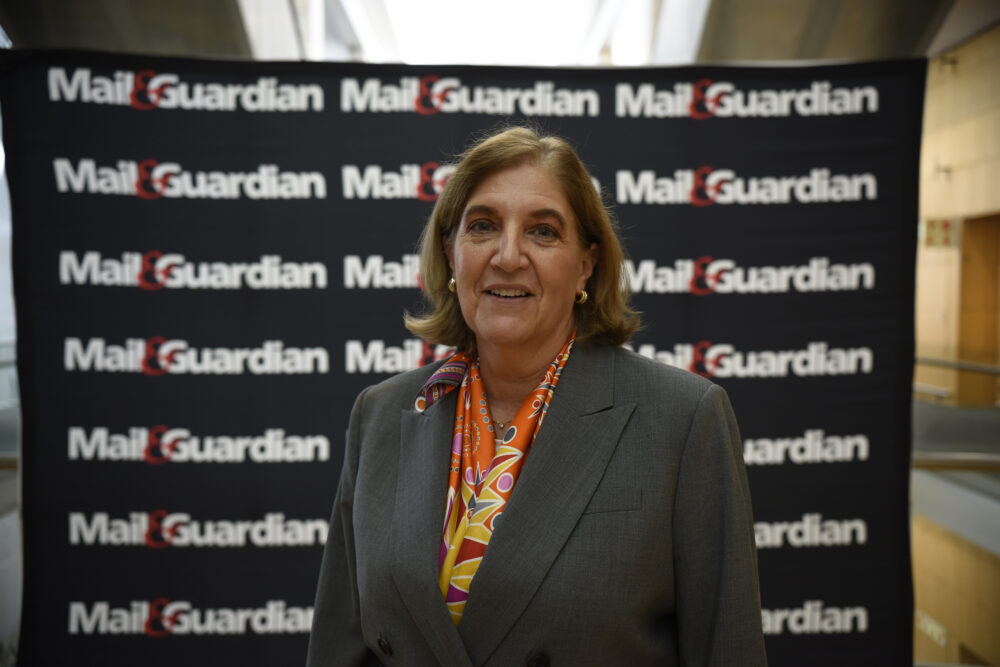 Stephanie O’Keefe Photo: David Harrison
Stephanie O’Keefe Photo: David Harrison
Stephanie O’Keefe: Chief Executive Officer, International Women’sForum (IWF)
Stephanie O’Keefe, Chief Executive Officer of the International Women’s Forum (IWF), brings precision to her leadership. Speaking at the IWFSA Cornerstone Conference, she reflected on connection, community, and the role of women leaders in shaping a more inclusive future.
O’Keefe recalls that the conference theme, Ubuntu: I Am Because We Are, was decided over a year ago. “When I first heard the word and understood its meaning, I knew it was perfect for IWF,” she says. “This is what we are about. It reflects the essence of our mission, to uplift one another and to lead with shared humanity.”
Her leadership philosophy strikes a balance between personal grounding and collective action: “It’s important to be centred in your family and community, and to carry those values forward,” she explains. “An individual can’t do everything, but an individual can always do something.” This belief underscores the IWF’s global efforts to build networks of women who act locally while thinking globally.
Addressing growing social isolation, O’Keefe identifies loneliness as one of the defining challenges of modern society. “It’s global, intergenerational, and particularly acute among young men and older people,” she notes.
At IWF’s most recent global conference in Seattle, the organisation hosted a session titled The Problems for Boys and Men are Problems for Girls and Women, highlighting the interconnected nature of gendered social challenges. “We looked at solutions from every angle, policy, education, family structures, and social systems. Change must happen at all those levels.”
On the subject of children and technology, O’Keefe expresses cautious concern. “Many leading tech figures, including Bill and Melinda Gates, delayed their children’s access to social media. That should tell us something,” she says. “It speaks to the need for balance, for creating spaces where young people can engage authentically without digital interference.”
For O’Keefe, in-person connection remains irreplaceable. “During the pandemic, we did our best online, but over time, it creates fatigue,” she explains. “When you’re in the room with these women, you see joy, you see support, you see them embrace one another. There’s nothing quite like being in the same space with people who share your values. It fills you up.”
The energy of this year’s gathering, she says, captured the spirit of ubuntu perfectly. “This conference reminds us that leadership is not a solo act. It’s about being part of something larger, something rooted in compassion, connection, and collective progress.”
Paving Pathways: Young Women, Ethics, and Impact
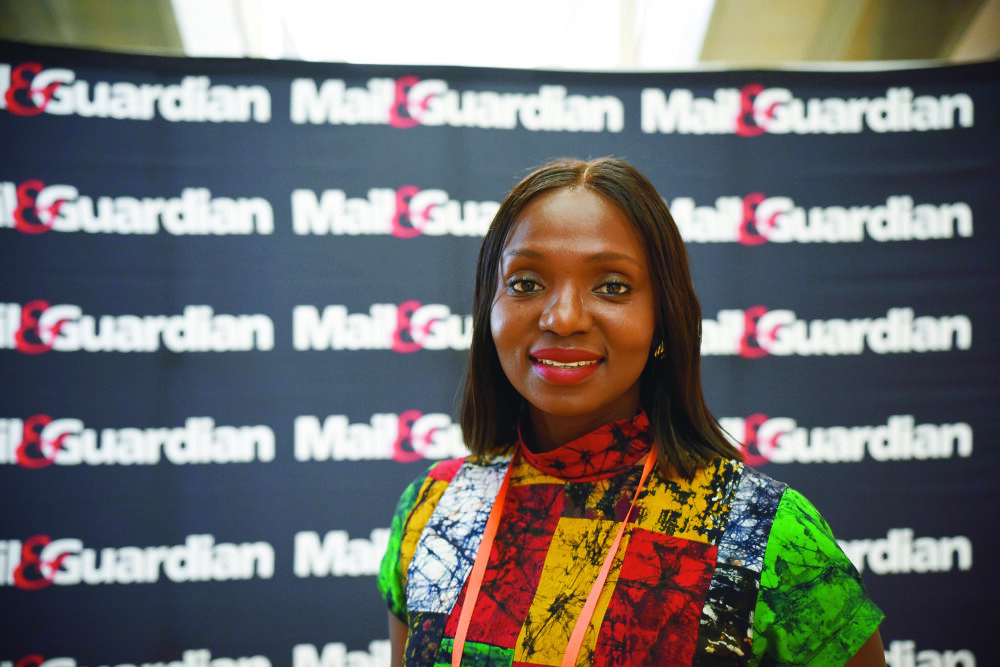 Katekani Hlaise Photo: David Harrison
Katekani Hlaise Photo: David Harrison
Katekani Hlaise: Co-Chair of the Young Leaders Connect (YLC) IDEAL
Katekani Hlaise, Co-Chair of the Young Leaders Connect (YLC) IDEAL, has over a decade of experience in investment banking. She brings a pragmatic yet values-driven approach to mentorship and leadership development. Her work through YLC centres on empowering young women to lead ethically, think globally, and create lasting social impact.
“YLC (as an initiative of IWFSA) exists to develop the next generation of young female ethical leaders,” she explains. “I come from a background where I was often in the minority,” she says of the corporate world and up- bringing, “and I thought, if I can do this, then others can too.”
For Hlaise, representation is not just symbolic but strategic; it signals possibility and opens doors for those who come next. “The values that shaped me at home, the discipline, humility, and curiosity, still shape my decisions today,” she says. “Leadership starts with who you are when no one is watching.”
She believes that ethics are tested in everyday moments, not only in public declarations. “We test ethical leadership not just in big moments but in everyday decisions,” she explains. “At YLC, we invite people to volunteer and participate in vari- ous programs including the board leadership training which expose young women to decision-making under pressure. It’s about seeing how someone acts when entrusted with a little, because that’s how they are most likely to behave when entrusted with more.”
Hlaise encourages young leaders to embrace technology and globalisation as tools for empowerment rather than in- timidation. “Young women must see that South Africa is not their only market,” she says. “Whether you use social me- dia as a marketplace or a global platform, the world opens up beyond our borders. We must shift from a subsistence mindset to a scale mindset.”
Her vision for YLC extends beyond professional success. It is about cultivating character, resilience, and community-mindedness. “Volunteer where you are. Serve where you are,” she advises. “It may not always benefit you immediately or in monetary terms , but it shapes you as a solid and effective leader. The door you open today might lead you to the one you need tomorrow”
Mentorship, Ubuntu, and Pioneering Change
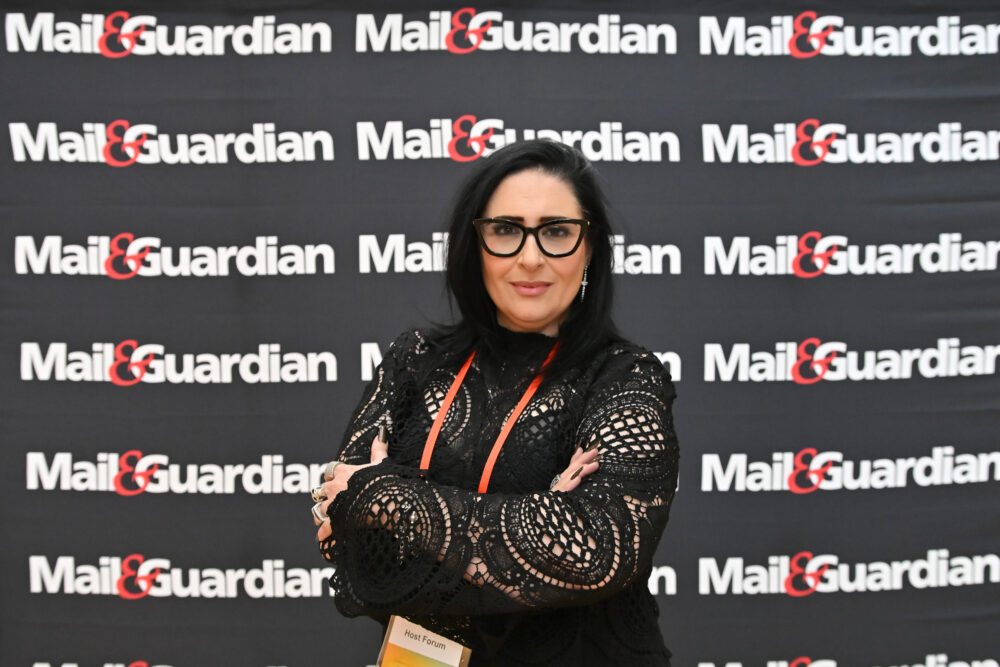 Nicqui Galaktiou Photo: David Harrison
Nicqui Galaktiou Photo: David Harrison
Nicqui Galaktiou: Director of the International Women’s Forum South Africa (IWFSA) and Founder of Nicqui Galaktiou Inc. Attorneys
Nicqui Galaktiou, Director of the International Women’s Forum South Africa (IWFSA) and Founder of Nicqui Galaktiou Inc. Attorneys shared her insights on leadership, mentorship, and legislative reform at the IWFSA Cornerstone Conference. With more than two decades of experience in commercial, transactional, litigious, and insolvency law, Galaktiou combines legal expertise with a commitment to empowering women and advancing social change.
“The strength of IWFSA lies in the opportunity to network, exchange ideas, and learn from other chapters worldwide,” says Galaktiou. She highlights South Africa’s pioneering #1000 Women Leadership Programme, developed in partnership with FASSET and Duke CE, which equips mid-and executive-level women leaders in the finance sector with skills to thrive: “This programme is exceptional in its design, pairing mentees with IWFSA mentors and providing immersive, practical training. It has set a global benchmark and created a lasting legacy for women in leadership.”
Galaktiou also emphasises the importance of systemic change to achieve equity. “I run an all-female law firm, not to exclude men, but to focus on advancing gender equality,” she says. She has actively contributed to legislative reform, presenting to Parliament on the Sexual Offences Act and the Criminal Procedure Act, and is working through IWFSA’s Catalytic Strategy Committee on a Gender Equality Bill. “These efforts are about ensuring that laws and policies support women meaningfully, not just symbolically,” she adds. She prioritises cultural alignment when hiring, valuing collaboration and shared purpose alongside academic qualifications.
Mentorship forms the cornerstone of Galaktiou’s approach to sustainable leadership.
“Having mentored across legal, energy, IT, and finance sectors for over 20 years, I’ve seen a common thread: obstacles often begin at home. Cultural expectations and family dynamics can limit women’s confidence and advancement long before they face challenges in the boardroom,” she observes.
Her mentorship work addresses these barriers, helping women build resilience, assertiveness, and the confidence to lead.“Before women can thrive professionally, we must address both systemic and personal barriers. Mentorship is not just about guiding careers; it’s about enabling women to realise their full potential and create lasting change.”
